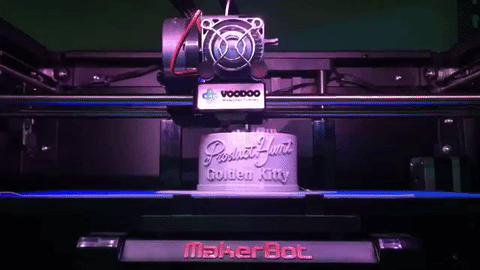A research paper on the security vulnerabilities of 3D printing rose to be the most-read engineering paper of 2016 at Springer Publishing, one of the country’s major publishing houses, NYU Tandon announced last week. Given that Springer has 245+ engineering journals, that’s not nothing.
The paper, Manufacturing and Security Challenges in 3D Printing, was written by Tandon researchers Nikhil Gupta, Steven Eric Zeltmann, Ramesh Karri, and others.
We covered the paper when it came out in July, and had a chance to interview Gupta.
“If a printer is directly hacked and the changes are made on-the-go to create a defect (such as ordering the printer to skip depositing the material or depositing it at a low temperature so that it does not fuse with the other layer),” Gupta told us this summer, “then the defects may go undetected as a lot of parts are built over several hours of printing time. Many printers are always connected to internet to queue the print jobs remotely or to diagnose problems.”
Not a big deal for your sweet Yoda figurine; a very big deal for 3D-printed airplane parts.
If that’s got you interested, check out the paper itself. Everyone else is doing it.
Read the full paper






